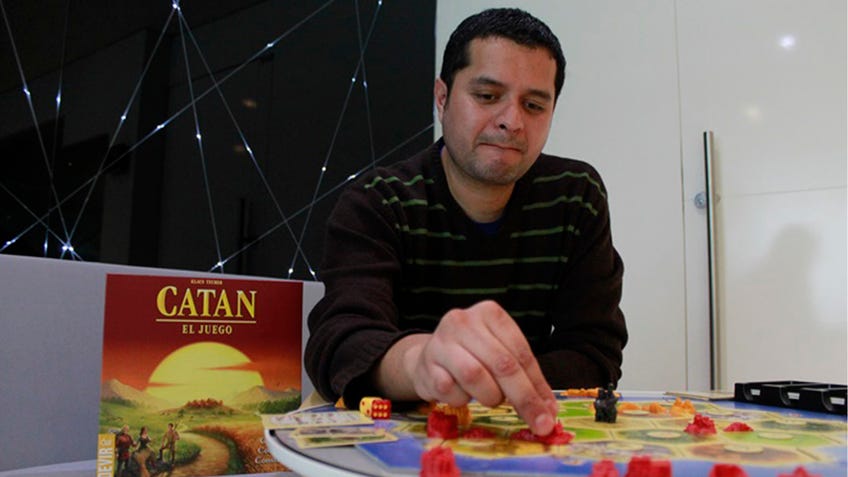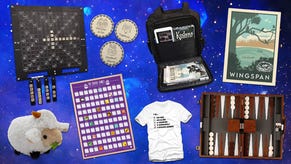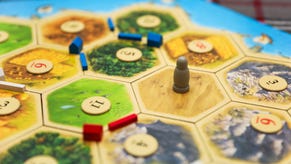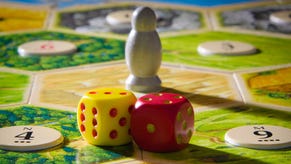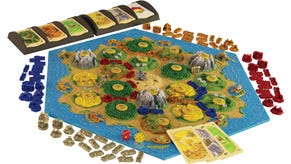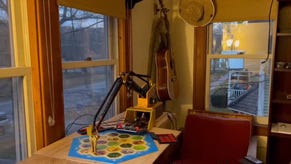8 tips on how to master Catan from the board game’s World Champion
Quetzal Jiménez reveals his strategies for trading your way to victory in the tabletop classic.
Since it changed the face of board gaming in 1995, Catan has become a true modern classic of the tabletop. A-List celebrities from Frozen actor Kristen Bell to pop star Carly Rae Jepsen are fans, while Klaus Teuber’s iconic board game has inspired numerous spin-offs - including those set in the worlds of Star Trek and Game of Thrones - a trilogy of fiction novels and even an upcoming movie adaptation.
While there’s a good chance you already know how to play Catan, mastering the board game of trading, building and resource-collecting is another matter entirely. Catan mixes the careful planning of where to build your next road and settlement in order to amass precious resources with the around-the-table diplomacy of needing to trade with your fellow players to get what you need - without handing them too much of a shot at victory.
If you’re looking for high-level Catan play, the first place to look is the board game’s official World Championship, which marks its 20th anniversary this year. Held every two years (with the exception of 2020’s championship, postponed due to the COVID-19 pandemic), the World Championship sees the best Catan players from around the globe gather to determine the greatest Catan player in the world.
This year’s Catan World Championship will see current Catan World Champion Quetzal Jiménez defend the title he earned in 2018, with the Mexican pro looking to fend off more than 80 hopeful competitors - the biggest Catan tournament to date.
Ahead of the 2022 Catan World Championship in Malta’s capital Valletta on November 19th and 20th, Dicebreaker asked Jiménez for his advice on helping Catan fans improve their play to take them from Catamateurs to seasoned Settlers.
Jiménez points out that the rules used in Catan’s official national and international tournaments are the same as the standard rules found in the board game’s box (currently in its fifth edition), with extra detail around specific rules available on the Catan website to help avoid confusion during high-level matches. The world champion recommends that players looking to up their game check out the extended clarifications in order to make sure they’re playing as closely to the official rules as possible.
With that in mind, here are Jiménez’ top tips for becoming an unbeatable Catan player.
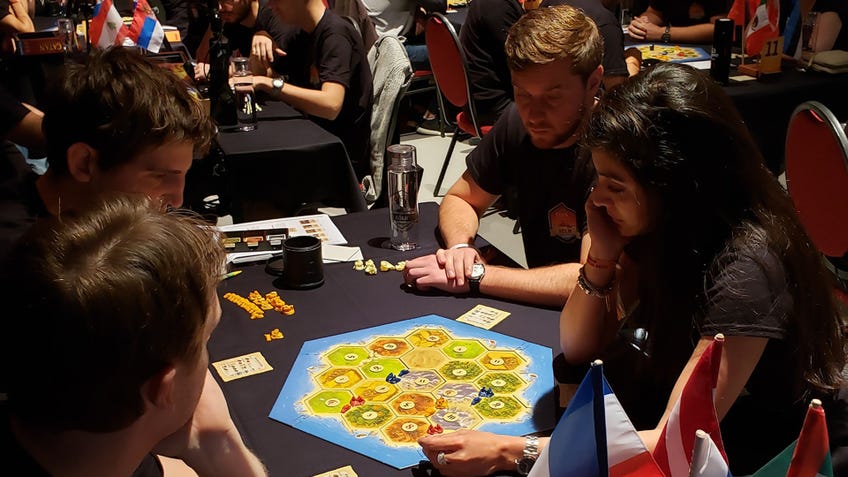
1. Use public information to your advantage
Besides which specific resources are in each player’s hand or the resources stolen by the robber, all the other information is public and must be answered with the truth, which can be reviewed by other players: the number of cards in hand, the number rolled on the dice this round, cards traded, remaining resources and number of development cards in the bank, development cards in table and which of those were bought on this current turn.
Use this information in your favour. Be aware and, when needed, point out this information to the other players. This can help with negotiations, trades, decisions in what to build, having a better perspective of the temporal landscape of the game and even in bluffing.
If you have a facedown card and ask the bank openly how many sheep cards remain before feigning a pause for thinking, that can suggest a monopoly; watch the other players do suboptimal trades to get rid of their sheep and forget about other things.
2. Remember Catan is a social game
Half of Catan is strategy, engine development, statistics, memory and a little luck. The other half is negotiation and how you show information to the other players around the table. There is a lot of social interaction in this and how and what kind of language you use, be it verbal or non-verbal. These are cues from you and the other players for each step during every turn.
Being kind, smiling, using eye contact, showing yourself relaxed and secure, being attentive, respectful, funny, expressing clear ideas and information. Communicating cues such as these in a nonverbal manner and learning to recognise them can make the other players more open to you and your trades, and make you less susceptible to misdirection and better attuned to the importance of certain information that can benefit or sink you.
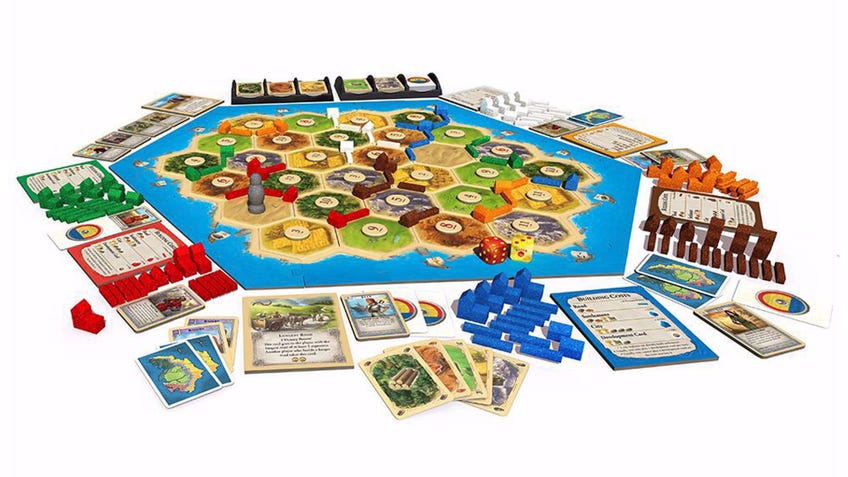
This is backed by numbers where more trades mean significantly more wins. In tournaments you probably will find players from previous tables in other matches. Building a presence of kindness, great communication and openness is an exploitable edge, and ultimately makes for a better and funnier experience for everyone. The benefits on the table can be measured, but those outside of it are even bigger and more rewarding as personal growth.
There are all types of players and personalities but you will always see the most kind and open players in the finals and as champions, because Catan is a social game. So, take a dive into books, videos and learning material about communication, sales and showmanship - it will benefit your game, trades, social and personal development by helping you to read cues and dismiss misdirection.
3. Keep track of what’s happened so far
Try to always remember at least the last round of dice throws. This will provide a more approximate knowledge of which resources are available in the hands of the players and what trade they might be open to - what they need, what they lack, if a resource is more valuable because of rarity or even if there are none of a particular resource available - your odds to steal an specific resource and other details that you can make other players aware of. All this information will help you to make better trades and decisions.
You can expand this advantage if you keep track of more dice rolls, trades and builds of other players, to the point where you can know exactly what each player has in every moment of the game and exploit it.
4. Learn to use and defend yourself from the Robber.
The Robber blocks the production of a tile and steals a random resource from a player’s hand. This doesn’t mean simply blocking whoever has more points, as the Robber can also be used to:
- Delay someone who is competing with you to build in a place on the board.
- Steal the exact resource you need.
- Stop the generation of a specific resource for one or more players, even entirely.
- Diminish the advantage of a player with the best position in buildings and production on the board.
- Change the state of the game to open or create a better trading position for you.
All of these, together with the memory and the public information of the game, makes the Robber something that you always use to get an advantage and benefits, not just to block the player with most points or get revenge.
Likewise, to defend yourself from the Robber there are a number of options:
- Have a variety of development cards.
- Have different tiles that produce the same resource.
- Have a port to exchange surplus goods for another resource.
- Have an extreme surplus of another resource.
- Force the purchase.
There are a number of social roles the Robber can play, too:
- Ask not to be the robber victim. (It works from time to time!)
- Using your memory and available information, signal and point to another player who has what the Robber mover needs.
- Argue why blocking another player or tile would provide a better advantage to the Robber mover.
- Remind the Robber mover that you have facedown development cards and implicate retaliation. Something as simple as theatrically tapping your facedown development card, making eye contact and a nod can deter a player from using the Robber on you.
5. Trade!
Always ask for the trade. Always! Suggest it during other players’ turns. Always look for an opportunity. You never know what the other players are aware of. Even an advantage that you might have, to the point where they can unwillingly provide you with victory.
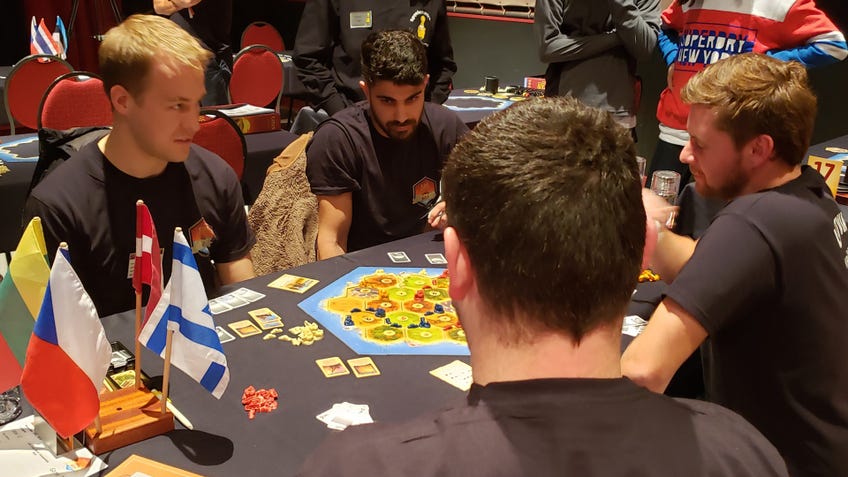
6. Order your turn effectively
As a player, you can use development cards, trade, buy and build in any order, as many times as you want - or can. This is written in Catan’s rules. Use this to your advantage; do one thing, then check the information you have. What things have changed? What would be the next best action? Does it open up a trade opportunity that was not there a second before? Repeat.
You do not need to do all your builds and purchases at the same time in a particular order.
Be aware of the same from the other players. An innocent-looking trade or a facedown card can become a real problem if you lose track of the information on the table.
7. Don’t wait for the perfect moment, always spend what you have
The game landscape changes with each roll, trade, development card used and build action. Yes, sometimes you need to save for that city, but it is always easier to go for board and card development than to wait to have the right cards for the play you want to do.
Resource cards do nothing on hand, development cards do nothing facedown. Don’t wait for the optimal and best moment - use them if you can. Any minimum advantage is better than no advantage at all and, most probably, that moment you are waiting for will never come.
8. If you can’t do anything else, buy a development card
My final tip is "En caso de duda, el cartón ayuda": "In doubt, buy a card." (It doesn’t have the same ring without the rhyme in Spanish, but so it goes.)
The point is, if the available trades aren’t the best, the numbers aren’t rolling in the right way, that resource you need is nonexistent, your life depends on that weird number and a game plan doesn’t show itself the next round, try to do anything in that moment to buy a development card.
It will help you in one way or another and will always be better than spending three rounds waiting for a brick to be available, or waiting for that 3 to roll and get you the rock for a city.
